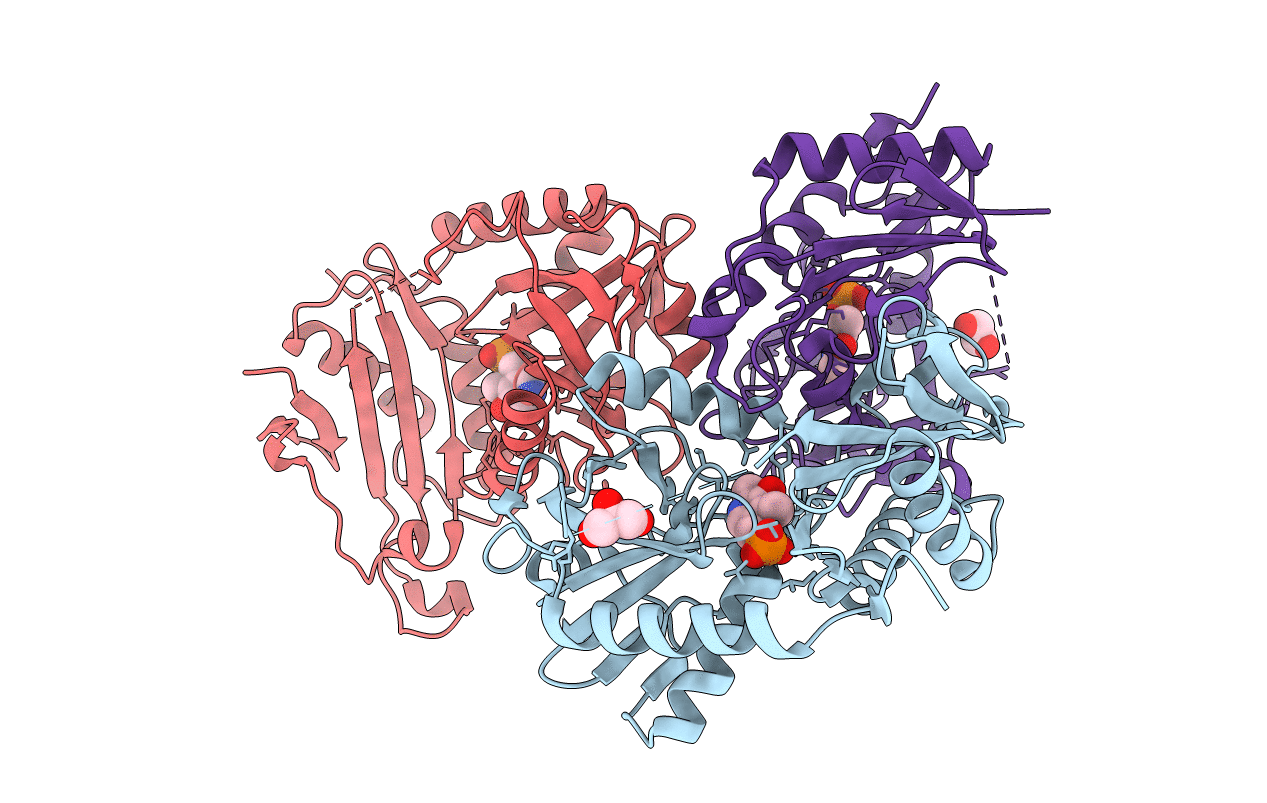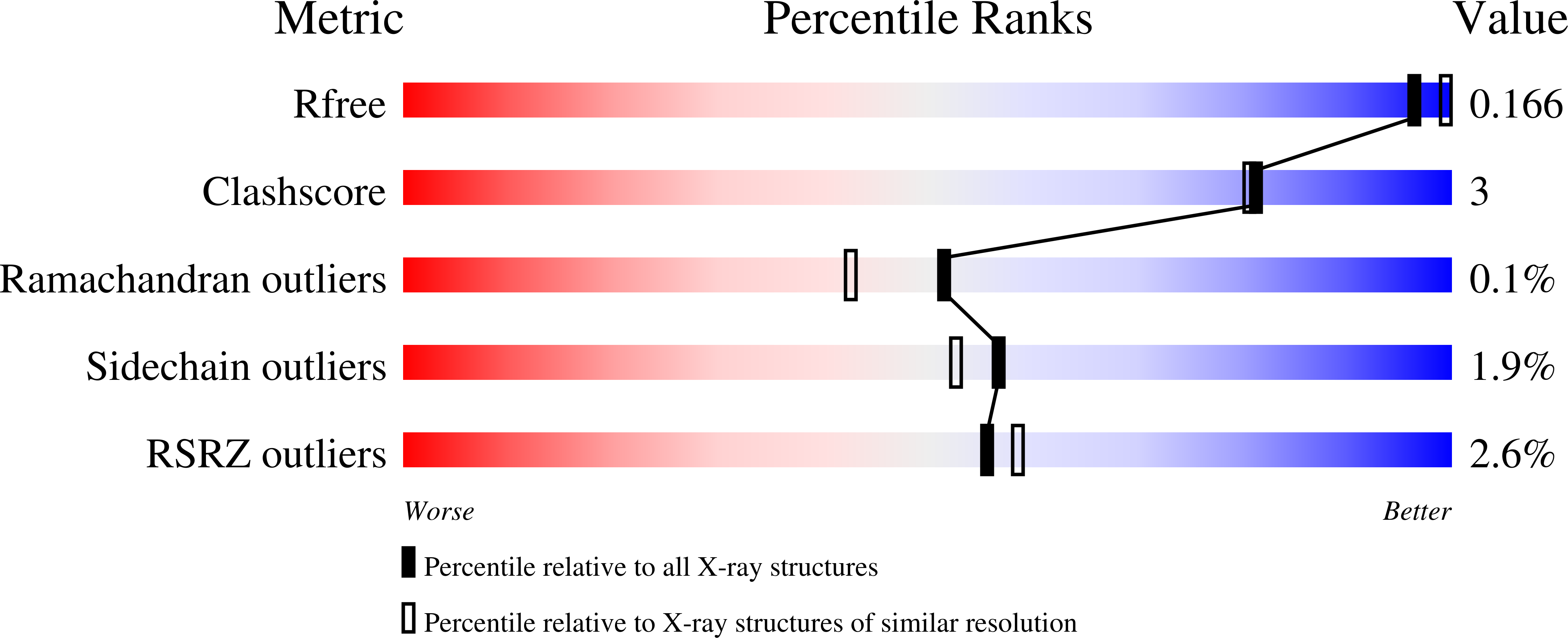
Deposition Date
2015-07-16
Release Date
2016-09-14
Last Version Date
2024-01-10
Entry Detail
PDB ID:
5CM0
Keywords:
Title:
Crystal structure of branched-chain aminotransferase from thermophilic archaea Geoglobus acetivorans
Biological Source:
Source Organism(s):
Geoglobus acetivorans (Taxon ID: 565033)
Expression System(s):
Method Details:
Experimental Method:
Resolution:
1.90 Å
R-Value Free:
0.18
R-Value Work:
0.15
R-Value Observed:
0.15
Space Group:
P 32 2 1


